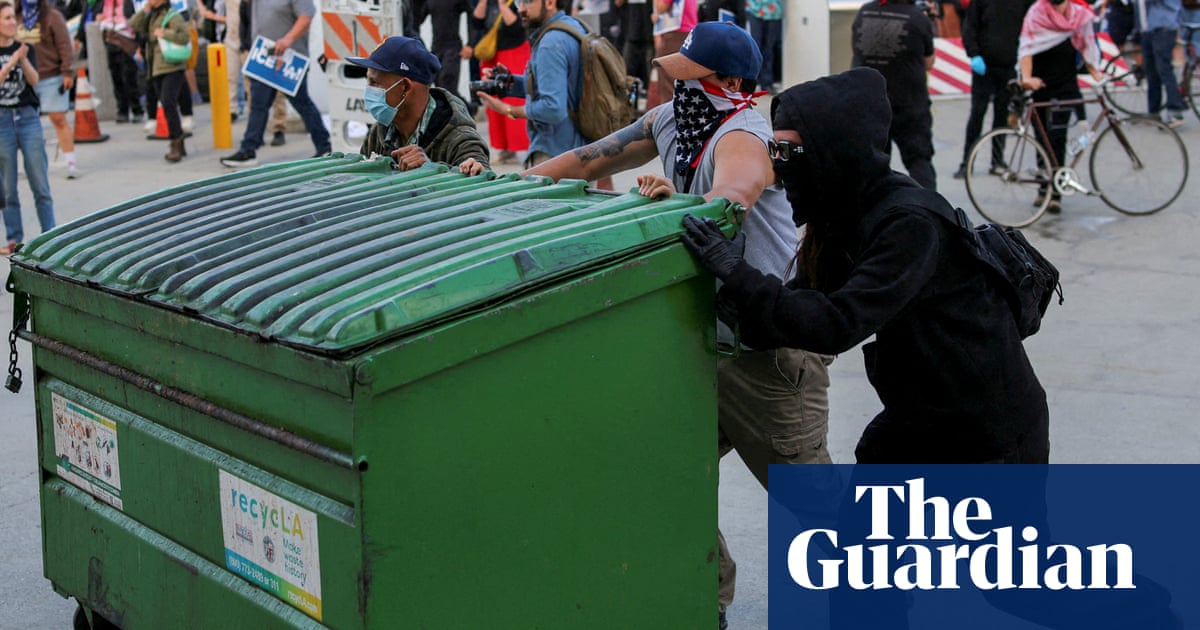Tracey Kruger’s storage unit was meant to be temporary. The 63-year-old had been forced to leave her home and, with no fixed address, she placed nearly everything she owned in a storage shed in Melbourne’s north.
She was left heartbroken – and out of pocket – when her unit was one of more than 10 at the StoreLocal in Campbellfield that police allege were broken into and robbed in June last year.
The disability pensioner lost household goods and items that would have been almost worthless to others but were priceless to Kruger, such as her grandmother’s jewellery and her dogs’ ashes.
“It was an absolute mess – my whole unit was just trashed,” she says. “I was crying. I was sobbing.
“There were things in there that I can never be compensated for.”
Kruger is only one of many who have suffered losses from several Melbourne storage facilities over the past 12 months.
Victoria police say two men, aged 35 and 46, face multiple charges over the alleged Campbellfield break-in.
Three other storage facilities in Melbourne’s south-east were allegedly burgled between January and June last year. Two men face multiple charges over the three alleged break-ins.
Police also allege three offenders broke into between 70 and 80 storage units at National Storage in Mordialloc between 30 April and 7 May last year.
Legal experts say Kruger’s case raises questions about the liability of the facilities in such cases.
Kruger had signed a five-page contract, seen by Guardian Australia, which states goods are stored at the “sole risk and responsibility” of the customer “except to the extent of any negligence” by the facility owner.
It further states that if the facility owner is “liable to the storer in any way” then compensation is limited to the total fees paid. It asks the customer to acknowledge the “limitations” as “reasonable”.
Kruger wrote to StoreLocal Campbellfield asking for compensation for the stolen goods, but it declined. The facility ultimately told her it would refund her storage fees totalling $5,430.86, after she says she left it a one-star Google review.

Kruger wrote again, in a letter seen by Guardian Australia, arguing the storage facility should be liable, alleging it “did not install sufficient cameras, nor did it employ security guards at the site”.
“It also failed to ensure that other storers were removed from the facility outside of the permitted access hours [6am-9pm],” she alleged.
She received no reply to that letter.
StoreLocal’s website advises people who rent storage space to insure their goods.
after newsletter promotion
Nufar Gofman of the Consumer Action Law Centre, which is assisting Kruger, says Kruger told her she had not been able to find an insurance company that would insure her storage unit before she rented it in May last year.
The centre argues storers should be able to rely on broader Australian consumer law in such cases, even if storage companies have a clause in their contracts excluding them from liability.
They argue the contract terms should be considered “unfair” because consumer law requires any service to be “fit for purpose” and “provided with due care and skill”.
Gofman says: “Australian consumer law entitles the consumer to damages if there’s been a breach of the consumer guarantees, which we allege there has been. This is something that we see with a lot of storage contracts, is that they try to limit their liability.”
But Mark Giancaspro, a senior law lecturer at the University of Adelaide and an expert in contract law, says he would expect storage companies to have “fairly sweeping exclusion clauses” in their contracts.
Giancaspro says Kruger’s lawyers could potentially argue that the storage services were not provided in line with the guarantees enshrined in consumer law because the alleged break-in raised questions about the effectiveness of their security protocols.
However, Giancaspro says, there probably “isn’t anything wrong” with the contracts themselves.
“The problem is, I dare say, most of the tenants who are renting units in that facility wouldn’t have read those terms,” he says. “Unfortunately, you are bound to them, even if you haven’t read them.”
Prof Jeannie Paterson, from the University of Melbourne’s law school, takes a different view.
Paterson, speaking generally, says companies can’t “contract out” of the protections provided by the Australian consumer law.
“If you’re a consumer storing goods, the contract can’t exclude the liability of the facility to you,” she says. “Now that means that the person who stored their goods is entitled to damages for consequential loss to the extent that there’s a breach, which would mean getting much larger damages than just the refunding of the [storage] fees.”
StoreLocal did not respond to requests for comment.

 3 months ago
52
3 months ago
52

















































